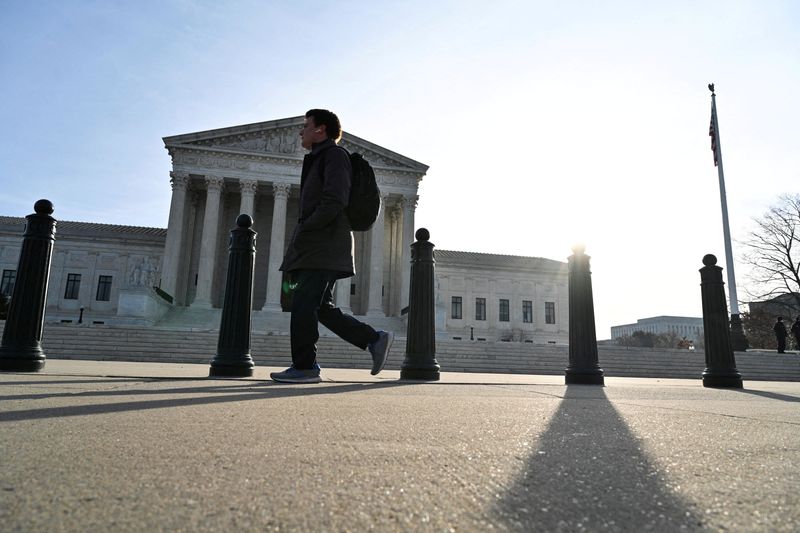By Lawrence Hurley
WASHINGTON -The U.S. Supreme Court on Tuesday rejected a bid led by Dakota Access oil pipeline operator Energy Transfer LP to avoid additional environmental review of a section that runs under an artificial lake and is opposed by nearby Native American tribes, leaving the pipeline vulnerable to being shut down.
The justices left in place a lower court’s decision that ordered the federal government to undertake a more intensive environmental study of the pipeline’s route underneath Lake Oahe, which straddles the border of North Dakota and South Dakota. The pipeline, known as DAPL and open since 2017, will continue to operate as the review is carried out.
“We call on the administration to close the pipeline until a full safety and environmental review is complete. DAPL never should have been authorized in the first place, and this administration is failing to address the persistent illegality of this pipeline,” said Jan Hasselman, a lawyer for the environmental group Earthjustice who represents the Standing Rock Sioux Tribe.
The Dakota Access pipeline has been the subject of a lengthy court battle between tribes seeking its closure and Dallas-based Energy Transfer.
Whether the project should be shut down was not at issue in Energy Transfer’s Supreme Court appeal. But Energy Transfer said in court papers that the pipeline remains “vulnerable to a shutdown” with the new environmental review pending. The company did not immediately reply to a request for comment.
The Standing Rock Sioux Tribe, along with the Yankton Sioux Tribe, the Oglala Sioux Tribe and the Cheyenne River Sioux Tribe, have opposed the biggest pipeline out of the Bakken shale basin. The pipeline runs about 1,170 miles (1,885 km) from North Dakota to Illinois. The disputed section on federal property under Lake Oahe, an artificial reservoir on the Missouri River, is 1.7 miles (2.7 km) long.
The tribes draw water from the lake for various purposes, including drinking, and also consider the waters of the Missouri River to be sacred. Their lawyers have said the tribes are worried about a potential oil spill.
The tribes lobbied hard to prevent the easement under the lake from being approved and initially appeared to have succeeded when in 2016 the administration of Democratic former President Barack Obama said it would review its original action to allow construction. But after Republican Donald Trump became president in 2017, the government endorsed the original decision to grant an easement.
Democratic President Joe Biden’s administration urged the Supreme Court not to hear the appeal, saying the pipeline operator concerns about a shutdown were overstated.
Washington-based U.S. District Court Judge James Boasberg in 2020 found that the government had violated a law called the National Environmental Policy Act and threw out the approval.
Boasberg ordered a more detailed “environmental impact statement,” which was the decision the pipeline operator was challenging. Boasberg subsequently ruled that the pipeline be shut down but the U.S. Court of Appeals for the District of Columbia Circuit blocked that decision while allowing the additional environmental review.
The U.S. Army Corps of Engineers, the federal agency overseeing the permit approval process, has said it expects to complete the review later this year.
(Reporting by Lawrence Hurley; Editing by Will Dunham)
